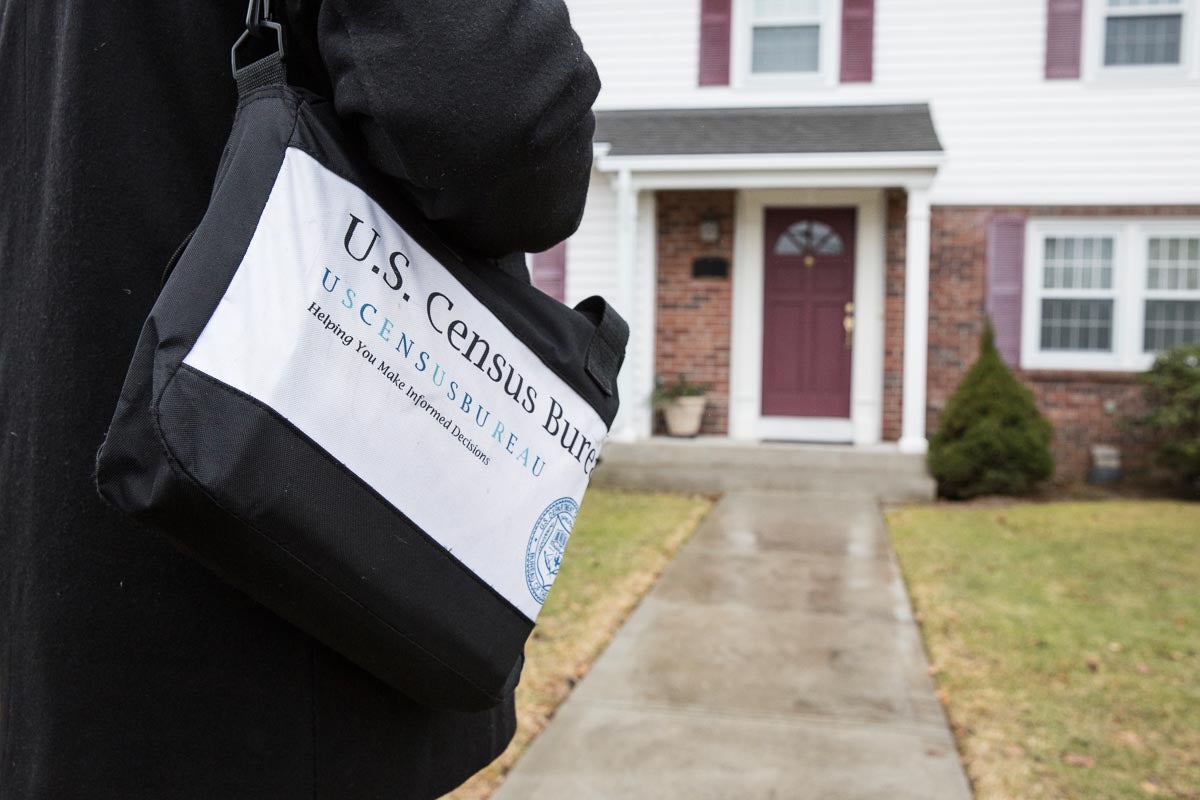The 2020 census will be one for the history books as it is the first decennial count to be taken online and in the age of social media.
But with the revolution of the census going online, along with it come new issues—including the potential of social media campaigns to "undermine Americans' trust in democratic institutions," hackers infiltrating and misusing the information and public fear of personal information being leaked—all of which are heightened with budget reductions. Less money for the Census Bureau to use for security and public information preparations means there's a greater chance of a miscount or a security breach, according to Tom Brunell, professor of political science at the University of Texas at Dallas, which affects states' federal funds, the number of House representatives and votes in the electoral college.
The census was moved online because it's projected to save the government $5.5 billion, which comes from a combination of printing costs for the forms, census workers making in-person home visits and about $124 per household filing online, according to Brunell.
During a conference Friday hosted by the Hobby School of Public Affairs, Brunell spoke on the impending challenges the 2020 census will face. "This is also the first census that social media will play a part," Brunell said during the conference. "Is the census ready for people potentially being discouraged from participating in the survey? No. The census isn’t prepared for how social media is going to play a part, with people discouraged from participating to fears of Russia hacking or personal information being stolen."
Past vulnerabilities with technology were shown in the 2016 election's voting infrastructure and Facebook's privacy breach, both of which could warp Americans' trust in handing over their personal information to the government. Security experts Joshua Geltzer and Matthew Olsen wrote in the Washington Post, the census and its respondents could easily be targets for similar breaches of online security.
The census database could be used for identity-theft or foreign-micro-targeting purposes, and the data could also be prone to tampering, Geltzer and Olsen argue.
"But the census is vital to the country’s functioning. It’s not just a count of all households or a measure of American characteristics. It’s also an augur of political, economic, and cultural forces—a predictor and an allocator of power. In times of social upheaval—between political parties, whites and nonwhites, urban and rural areas, economic elites and the working class—the census can function almost like an umpire. And today, when each of these intertwined conflicts is escalating, the incentive and ambition for working the ref are greater than they’ve ever been," writes Vann R. Newkirk II for The Atlantic.
With the knowledge that the census would likely make the move to the World Wide Web, the Government Accountability Office (GAO) has studied security issues since the 2010 census.
"Because the 2020 Census involves collecting personal information from over a hundred million households across the country, it will be important that the Bureau addresses system security weaknesses in a timely manner and ensures that risks are at an acceptable level before systems are deployed," the GAO August 2018 census security report said.
Since the 2010 census, the GAO has made 93 recommendations specific to the 2020 census to address issues and the bureau has implemented 61 of those recommendations with plans to implement the other 32, though the GAO predicts additional recommendations are coming as political and technical climates are ever changing.
Another complicating factor unique to the 2020 census is the controversial citizenship question. While response rates overall have been going down over time, critics argue that the potential inclusion of a citizenship question would likely drastically lower response rates and truthfulness. Brunell argues that the question is causing hysteria and it isn't necessarily the question topic that lowers response rates, but just adding any type of question will likely lower rates.
"Response rates will go down, but I feel like adding any questions to the census will lower the response rate," Brunell said. "That’s why we have the long and short form because not everyone wants to answer 40 or 50 questions."
To make up for the chance of lower response rates if the question ultimately is included, Brunell points to funding in order to get the word out to people about the security of their answers and the fact that it's asking citizenship, not immigration status. Several states have gone to court in order to not have the question included in the 2020 census and the judge's decision is expected to come soon. Furthermore, this is why some states, like California, are backing the census with additional funding in order to clarify the role of the census to their citizens.
"The bureau does an incredible job on outreach and they will need to do that particularly well with Hispanic groups this time," Brunell said on the effect the citizenship question will likely have on Hispanic communities. "The data is protected by law and there is no indication of immigration status, just citizenship. Even if law enforcement asked for the data," he insisted, "the bureau would still say no, because it is protected by law."

